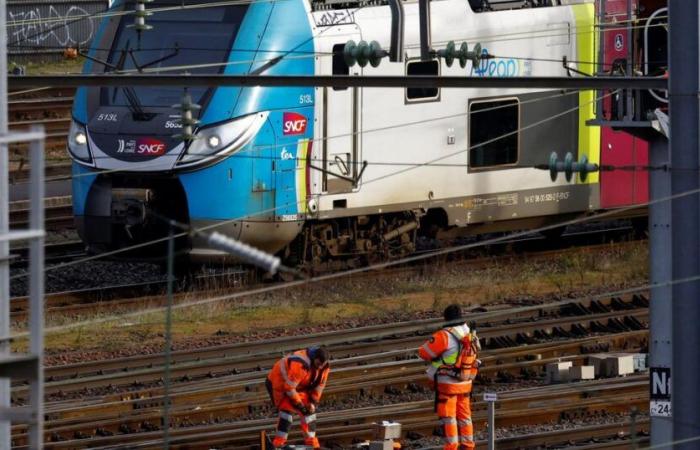It remains to be seen whether this increase above that of inflation (1.5%) will be enough to avoid an indefinite strike from December 11.
No huge surprises at SNCF during the meeting which marked the end of the NAO (mandatory annual negotiations) on salaries. At the end of negotiations which lasted five hours on Wednesday afternoon, the old railway lady offered its 150,000 employees a 2.2% increase on average when inflation, which is slowing sharply, is 1.5%. . “This is the fourth consecutive year that we have improved the purchasing power of railway workersestimates Philippe Bru, HR director of the railway group. Between 2022 and 2024, remuneration increased by 17% when inflation reached 13%.»
With this system, the lowest salary will remain higher than the minimum wage of 10%, or 1,580 euros net in January. Concretely, the proposed salary increase includes two parts: 1.7% due in particular to almost automatic changes in level, to which must be added in April a 0.5% general increase and a fifteen euro increase in the bonus of work. The representative unions in the company (CGT-Cheminots, Unsa-ferroviaire, Sud-Rail and CFDT-Cheminots) have until November 29 to sign or not an agreement providing for these provisions. “If two unions out of four sign it, whoever they are, we will implement this agreement», says Philippe Bru.
See you on November 29
The SNCF cannot afford the luxury of requesting the signature of the unions which together represent the majority of employees. “This scenario has never happened in the history of the company», notes Philippe Bru. Today, everyone is asking themselves a question: will these salary increase proposals make it possible to avoid the renewable strike from December 11? Put more directly, will there be trains at Christmas? Because if the strike notice was officially launched to protest against the disappearance of Fret SNCF replaced in January by two companies (Hexafret and Technis), the subject of salaries is the one which can ignite the powder, and encourage the railway workers to walk out .
On Wednesday evening, it was the reformist unions who reacted through leaflets. On the CFDT-Cheminots side, even if it is not explicitly written, we can read between the lines that the organization is rather favorable to this agreement. “If the measures do not meet the demands made by the CFDT railway workers, the question ahead is quite clear: should the money represented by the negotiated measures go to the agents or remain in the Group's accounts?», pretends to question this union. Unsa-ferroviaire does not reveal its batteries but still claims the benefit of the proposals put on the table by the SNCF. “The Unsa railway takes note of the proposals and advances it obtained through negotiations today», Explains the union.
For the moment, the two protesting unions (CGT-cheminots and Sud-Rail) have not reacted officially. The federal secretary of Sud-Rail, Fabien Villedieu, just blurted out: “It's not up to par. SNCF is the most profitable railway company in Europe.» It is therefore difficult to know if there will be a social conflict from December 11 because, traditionally, these last two organizations are the spearhead of long-term social movements at the SNCF. As for Philippe Bru, he especially does not want to link the subject of increases and that of an unlimited strike. It only specifies that in the event of no agreement, railway workers will only be entitled to a 1.7% increase due mainly to their automatic advancement based on seniority.






